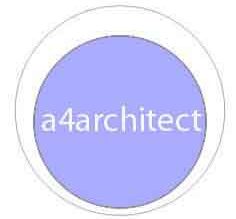Buying off plan is whereby someone buys a property before the construction is complete. In most cases, the purchase is in form of a 10 to 30% deposit towards the total sale price.
1. What are the pros and cons of buying a house off the plan?
Advantages.
Off plan sale prices are usually set at the break even point, without huge profit markup by the developer. The developers usually set up initial low prices to attract initial buyers from which will attract the rest of the buyers,hence setting up the low sale price.
Off plan sales also reduce the risk to the buyer since the initial required amount of 10 to 30% enables the buyer to have more time to do due diligence for the remaining 70 to 90% of the sale price.
Some smart investors buy buildings off plan when they are still in construction then resell once construction is complete, making huge profits easily since they only use the initial 10 to 30% then resell to new buyers when the price is high after completion.
This is one of the easiest ways to make millions of shillings in Kenyan real estate.
After a building is complete, naturally, the property demand becomes higher hence higher prices.
Disadvantages.
In rare cases, buyers can buy into a project whereby the developer does not intend to complete the building. Also, in rare cases, buyer can buy into a project then legal complications as towards the land ownership title deed can come into play eg at Tamarind Estate, Mlolongo whereby after buyers had completed paying and moved into the houses, the title deed developed issues of double allocation, resulting to long court cases.
http://www.businessdailyafrica.com/Corporate-News/Mwau-sucked-into-Tamarind-and-KCB-Mavoko-land-dispute-/-/539550/2477430/-/tohw2hz/-/index.html
In other cases, buyers do not get the quality of construction that was promised by the developer eg in the case of Greenpark estate, Athi river where buyers complained of sewer issues.
http://www.standardmedia.co.ke/m/story.php?articleID=2000106175&story_title=When-the-gated-lifestyle-dream-collapses
2. What are the things you’d advise a buyer to look out under this arrangement?
As an architect, i would mostly advise a buyer to look into the architectural, engineering and quantity surveying consultants hired. If the developer has retained the services of registered architects, engineers and quantity surveyors, for design all through till supervision to completions, chances of any technical failure is close to zero. In most of these failures as outlined above, the developers retain the services of architects, engineers and quantity surveyors for the design only so as to enable the county government to grant approvals. After approval to construct is granted, the developers then continue to construction phase without the architect, engineer and quantity surveyor input, hence the problems emanating from this. It would be prudent for the buyer to ask to see agreements between developer and consultants and go further and ask for proof of building supervision eg site meeting minutes and site attendance register.
Also, the buyer will need to make due diligence checks on the title deed to see if there are any caveats to the land and confirm the land ownership details.
3. How can a buyer ensure they are not ripped off in instances where the developer does not live up to the specifications?
If buyers insist on the architects, engineers and quantity surveyors involvement in supervision of construction, then chances of technical problems are reduced to zero. Consultants usually have strict code s of ethical conduct hence not easily moved towards shortcuts like developers hence ensuring quality. Buyers can also opt to hire independent architects, engineers and quantity surveyors to advice them throughout the building process as to whether the quality control mechanisms are being adhered to.
4. Many say the problem comes mainly when developers refuse to retain professional/qualified consultants like architects and engineers? Do you agree and what would you advise?
Yes. In Kenya, building construction is largely unregulated and the buyers are usually at the mercy of developers with little or no quality control input mechanism to protect buyers. Since the Kenyan laws are not well crafted to force all developers to use registered consultants, buyers will have to set up their own personal mechanisms such as hiring independent professionals to counter check quality until such a time when such laws will be in place and enforced to ensure consumer protection.
Francis Gichuhi Kamau, Architect.


Leave a Reply